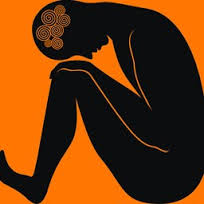Borderline Emotional Anaphylactic Reaction: Mindfulness and Acceptance
A mere critical stinging comment can just as easily send a person suffering Borderline Personality Disorder into “emotional anaphylactic shock.”
… from an insightful blog post by Sonia Neale. Here is the text of the post:
Borderline Emotional Anaphylactic Reaction: Mindfulness and Acceptance
By SONIA NEALE
Sometimes, the smallest things in life can cause the greatest pain and physical reaction. A bee’s sting is almost invisible to the naked eye and yet can easily kill someone when they have an allergic reaction. A mere critical stinging comment can just as easily send a person suffering Borderline Personality Disorder into “emotional anaphylactic shock.”
When a person has a life-threatening reaction to the poison from a bee sting, an ambulance is called and the person is taken to hospital where they receive treatment for their illness as well as respect and dignity but when someone suffering an emotional reaction to life circumstances presents at emergency, they are sometimes treated with rejection, intolerance and disdain. People can die from a bee sting and Borderlines can “die” from their own personal rage and self-hatred. If you present at emergency with a swollen face and throat unable to breathe with all your body organs shutting down, is some doctor or nurse going to say, “OMG, it’s a tiny bee sting, how bad can that be, look at you, get over yourself,” like they sometimes do when Borderlines present at hospital with similar symptoms.
Yet both types of people are in much pain and danger. One is considered entirely physical and the other is considered entirely emotional. Or is it entirely emotional? When a sensitive person with a history of trauma has an emotional “bee-sting” reaction to someone’s criticism there is a definite physical reaction.
Borderlines tend to be hypervigilant, which means they live with permanent muscle tension and a certain excess of adrenaline pumping round their system at any given time. So when criticism hits, the body goes into an emotional anaphylactic state where cortisol floods the brain and body system and a type of blackout occurs where nothing anyone says or does registers. Your body has gone into “shock.” When I used to get into such a state someone could have cut my arm off and I would not have noticed.Things are said during this time that are simply appalling. I have used language I would not use in normal everyday life. I have said things that are deeply hurtful and as my husband has said, “you can mend a vase but the cracks are always there for those to see.” My therapist says it is best to repair those cracks with gold. Her favourite quote, by Barbara Bloom is “When the Japanese mend broken objects they aggrandize the damage by filling the cracks with gold, because they believe that when something’s suffered damage and has a history it becomes more beautiful.” I prefer her take on this matter.
Therapy has taught me that my perception of events and criticism is usually erroneous. Even if people are critical and disrespectful, it is about them and not me. If my ideas get criticized it is not because I am a loser and I deserve to die, it is because we both have a different belief system and ways of handling situations. There is no right or wrong, just opinions.
I have criticized my therapist on many occasions including recently when she raised her colleagues’ fees in the light of almost certain public benefit cuts. Her reply was that her practice survived before the benefits were given and hopefully will survive after the benefits are cut. She raised her fees because she valued herself and her colleagues. She did not feel the need to get upset or question herself or her actions because she believed that what she was doing was the right thing to do.
It is this sort of self-valuing that is empowering to people like myself who always feel others are more valuable and powerful than I will ever be. When we assert ourselves and say, “No, I don’t like that because….” we can start to realize that it is ok not to people-please all the time. I said no to unpaid overtime because I value myself as a worker otherwise I will feel undervalued and get resentful. Like my therapist I am worth it.
Mindfulness and radical acceptance of people and situations as in Dialectical Behaviour Therapy is the key to, well, if not happiness, then a more content and peaceful self. It is the road to what Abraham Maslow calls self-actualisation – autonomy, independence, few but deep friendships, a philosophical sense of humour, resistance to outside pressures and transcendence of the environment. These are the things I strive for and have spent much time in therapy trying to get a good grasp of.
A great book, which promotes self-actualization that I am reading at the moment, is “The Art of Happiness” by the Dalai Lama. While I may not quite reach the emotional plateaus that His Holiness is capable of, I can certainly learn how best to inoculate myself when swarms of emotionally stinging bees are trying to infiltrate my brain and body system.


